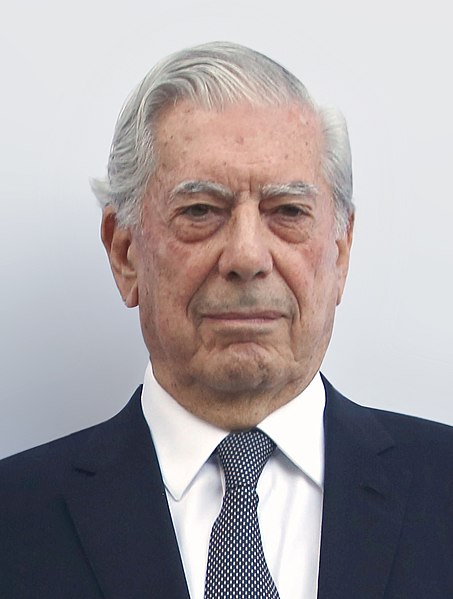The Feast of the Goat is a 2000 novel by the Peruvian Nobel Prize in Literature laureate Mario Vargas Llosa. The book is set in the Dominican Republic and portrays the assassination of Dominican dictator Rafael Trujillo, and its aftermath, from two distinct standpoints a generation apart: during and immediately after the assassination itself, in May 1961; and thirty-five years later, in 1996. Throughout, there is also extensive reflection on the heyday of the dictatorship, in the 1950s, and its significance for the island and its inhabitants.
First edition (Spanish)
The Dominican Republic's dictator, and the central figure of The Feast of the Goat, Rafael Leónidas Trujillo
Jorge Mario Pedro Vargas Llosa, 1st Marquess of Vargas Llosa, more commonly known as Mario Vargas Llosa, is a Peruvian novelist, journalist, essayist and former politician. Vargas Llosa is one of Latin America's most significant novelists and essayists and one of the leading writers of his generation. Some critics consider him to have had a larger international impact and worldwide audience than any other writer of the Latin American Boom. In 2010, he won the Nobel Prize in Literature, "for his cartography of structures of power and his trenchant images of the individual's resistance, revolt, and defeat." He also won the 1967 Rómulo Gallegos Prize, the 1986 Prince of Asturias Award, the 1994 Miguel de Cervantes Prize, the 1995 Jerusalem Prize, the 2012 Carlos Fuentes International Prize, and the 2018 Pablo Neruda Order of Artistic and Cultural Merit. In 2021, he was elected to the Académie française.
Mario Vargas Llosa in 2016
Mario Vargas Llosa's thesis «Bases para una interpretación de Rubén Darío», presented to his alma mater, the National University of San Marcos (Peru), in 1958.
Vargas Llosa in 1982
Mario Vargas Llosa with Mexican president Enrique Peña Nieto (2016).






